The 16 best Zendesk alternatives for customer support
With thousands of users, including top-shelf brands like Airbnb, Shopify, and Uber, it’s no wonder Zendesk enjoys a dominant market share in the customer service and help desk software world. With a mission to provide “AI-first service catered to humans,” it hits a sweet spot between robust features and user flexibility.
Zendesk is a good choice for users who want their customers to have more personalized interactions with service agents. Omnichannel support means that email, chat, social media, and voice calls are all managed in a single platform. Plus, its artificial intelligence (AI)-powered bot helps answer easy questions quickly and automate many repetitive service tasks, leaving agents free to focus on more complex requests. Over 1,200 third-party integrations with applications and CRM platforms means Zendesk should fit seamlessly into any tech stack.
In this article we look at reasons why you might want to consider a different customer support platform. We also look at Jotform’s role in customer service, including its integration with Zendesk Suite, as well as at Jotform’s AI Agents, which can help you fine-tune your customer support system. We examine 15 strong alternatives to Zendesk, including key features, pros, cons, pricing, and ratings. Finally, we provide some guidance on how to select the best customer support platform for your company’s needs.
Pro Tip
Expand your customer support channels by connecting Jotform’s Instagram Agent to automatically respond to DMs, comments, and story mentions—ensuring real-time, on-brand support across social media without adding overhead.
Why should you consider a Zendesk alternative?
If Zendesk is so robust and all-inclusive, why would a user want to evaluate alternatives? As with any major tech platform, Zendesk is not necessarily “all things to all users.”
Cost
While Zendesk’s basic or entry-level plan is relatively affordable (starting at $19 per agent monthly), the pricing structure grows increasingly complex from there, with top tiers reaching above $115 per agent monthly. Users report that while the per-agent fee (a common structure in this niche) helps make the platform more scalable, the restrictions on features by plan mean they have to pay more.
Since the platform was built for customer service ticketing systems, users who need to cover different contexts and use cases may have to spend more to make it do what they need it to do, whereas other platforms might be a better fit at a more comfortable price point.
Moreover, add-ons can be quite expensive for many users, especially smaller businesses with tighter budgets. With higher costs, startups and small businesses in particular may find their budgets shot in short order.
Steep learning curve
Some reviewers mention that Zendesk is difficult to master, especially in large-scale and advanced deployments. Moreover, many reviewers state that the tools they need aren’t necessarily intuitively organized or coded, even with specific training. The result is that users still experience delays and frustration while trying to complete some tasks.
While Zendesk offers many different robust features, the tradeoff is that it becomes increasingly complicated for many users. Steep learning curves can be mastered with private training sessions that can set you back a few thousand dollars and vital hours of the workday.
Limited support options
Zendesk does not offer round-the-clock support, which many software-as-a-service (SaaS) tools provide for at least some users. You’ll have to pay $6,000 or more to get a “premier add-on” of expanded support hours. This added feature is also only available in English, making it less useful for multinational or global organizations.
Some users report that they’re not happy with the level of support they eventually do access. There’s no phone support option, which can be frustrating to users who just need a way to simply talk through whatever issue they’re experiencing with Zendesk’s tools.
No centralized tracking
Customer support agents generally find it immensely useful to see a customer’s history of support. Zendesk doesn’t offer a simple way to access this kind of tracking, which makes protracted issues difficult to address.
This means your agents might have to keep asking the same questions of your customers who are seeking assistance, which may lead to lower customer satisfaction scores and increased customer frustration. While there is a note-taking feature that could be used to cobble together a work-around, it’s somewhat limited.
The 16 best Zendesk alternatives for customer support
As robust as Zendesk is, you’ll find a plethora of possible alternatives available at a variety of price points. Here are 16 tools that help companies and organizations provide unparalleled customer service and keep their users coming back for future purchases.
1. Jotform
Best for: Businesses of any size that already use Jotform or want to juice up their existing customer service processes
Developer: Jotform, Inc.
Limitations: Jotform isn’t specifically tailored to provide a full customer service platform; however, its features can radically improve your customer service management efforts.
Key features: Jotform can help you improve customer service management by registering new patients, giving customers discounts, collecting user feedback, and collecting feedback via Jotform’s easy-to-use Net Promoter Score (NPS) survey builder. Receive customer responses from any device. Try out Jotform’s AI Agents, AI-powered virtual helpers that provide customer service automation with omnichannel support to interact with your customers without any human intervention. Put these AI Agents to work and watch your customer satisfaction survey rates rise on every channel. Finally, if you’re happy with Zendesk, check out Jotform’s Zendesk integration that lets you automatically turn form submissions into new tickets in Zendesk and work with your team to process requests. You can also try Jotform Gmail Agent, which helps streamline customer support by drafting email replies based on your team’s tone, policies, and past messages. It’s especially useful for handling technical issues, product questions, and service requests—allowing support teams to respond faster and more consistently, all while maintaining personalization and control over each message.
Pros:
- Creates feedback forms to find out what your customers think about your service, products, customer support, and more
- Uses conditional logic to trigger surveys after specific customer service interactions, automatically sending them to customers
- Sets up automatic email notifications when a customer submits a service request or complaint
- Generates reports from submitted customer forms with Jotform Report Builder so you can analyze common service issues, monitor resolution times, and improve service offerings
Cons:
- Jotform is not specifically built to be an all-in-one customer service or help desk solution, so you’ll need to evaluate your current tech stack to see if you need additional solutions
- While intuitive in its user interface (UI), it may present a steeper learning curve for new users
Plans/pricing: Jotform offers four pricing models, including a forever-free plan which offers five forms, with a limit of 100 monthly submissions, 100 MB storage space, and 10 payment submissions per month. Each premium plan offers greater access to Jotform’s features. The Bronze plan ($34 per month) comes with access to 25 forms and 1,000 monthly form submissions; the Silver plan ($39 per month) provides 50 forms and 2,500 monthly submissions; and the Gold plan ($99 per month) provides 100 forms with 10,000 monthly form submissions. An Enterprise-level solution is also offered for custom quotes.
G2 rating: 4.7/5 (3,494 reviews)
2. Freshdesk
Best for: Growing startups and small businesses who want a simplified version of Zendesk
Developer: Freshworks, Inc.
Limitations: Scalability is limited, so large enterprises and organizations will probably find a better fit elsewhere.
Key features: Freshdesk offers a number of robust features, including collaboration tools and over 1,000 integrations. The AI bot “Freddy” helps users configure and deploy a chatbot to help prioritize and answer customer inquiries around the clock. The support ticket system integrates seamlessly with email and social media.
Pros:
- Includes omnichannel support (email, phone, social media, and live chat)
- UI/UX (user experience) is user friendly and easy to navigate
- Provides access to robust analytics with daily, weekly, and monthly reports
- Includes a free 14-day trial period
Cons:
- Lacks Zendesk’s customization options
- Runs slowly with high ticket volume
Plans/pricing:
The Free forever plan comes with a shared inbox, collaboration tools, and a knowledge base with access for two agents. The Growth plan ($15 per agent per month) adds features such as reports, real-time dashboards, and automation tools. The Pro plan ($49 per agent per month) includes all Growth features, then adds customized support portals and reporting tools. The Enterprise plan ($79 per agent per month) includes all features in the Pro plan, adding capability to set approval workflows, audit logs, and heightened security.
G2 rating: 4.4/5 (3,498 reviews)
3. Help Scout
Best for: Small to medium-sized businesses and startups that need a simple, scalable, customer support platform that prioritizes personalized service
Developer: Help Scout PBC (formerly Brightwurks)
Limitations: Many of its AI-associated features are still in development; it lacks some of the features other platforms offer.
Key features: Help Scout offers a scalable, cloud-based platform with a straightforward and easy-to-use interface. A shared inbox feature lets agents manage customer emails collaboratively. Help Scout also offers a knowledge base tool and an AI tool that summarizes long emails and threads.
Pros:
- Simple tools speed up both email and in-app messaging
- No extra fees for essential or basic features
- Provides strong support for team collaboration
- Includes a 14-day free trial period
Cons:
- Reports aren’t as in-depth or advanced as others
- Some users are disappointed by the limited number of integrations and the search function’s inefficiencies
Plans/pricing: The Help Scout plans are structured around contacts. The Free account maxes out at 50 contacts. The Standard plan ($50 per month) allows 100 contacts, while the Plus plan ($75 per month) starts with 100 contacts and adds apps for Salesforce, Jira, and HubSpot, as well as advanced permissions and workflows. Each plan permits unlimited users.
G2 rating: 4.4/5 (407 reviews)
4. Zoho Desk
Best for: Medium-sized to large organizations who need a more robust and advanced set of tools, especially ones that are already using other Zoho apps in their workflows
Developer: Zoho Corporation
Limitations: Some users report a cluttered interface that feels overwhelming compared to more streamlined platforms; others complain about a less-than-fully-featured mobile app.
Key features: Zoho Desk benefits from being a seamless part of the Zoho ecosystem of apps and tools, offering a highly customizable all-in-one experience for users. Users also benefit from over 300 third-party app integrations and AI-powered tools to help assign and prioritize incoming tickets.
Pros:
- AI assistant Zia sets up automation routines for repetitive tasks, suggests solutions to simpler inquiries, and helps assess customer sentiment (available only on Enterprise plans)
- CRM integration with other Zoho tools provides a centralized platform for managing all types of customer interactions and conversations
- Advanced automation features help teams streamline workflows
Cons:
- Less-expensive plans offer limited access to features and may not prove workable for users experiencing growth
- Not as simple or user friendly as some other platforms, so it might require more time for training and deployment
Plans/pricing: Zoho Desk offers four plans that range from $7 to $40 per user per month, when billed annually. The entry-level plan, “Express,” comes with email, social media, and web form support; a custom domain; multilevel escalations; and ticketing history/timeline features, among other features. Standard users get additional features like live chat and instant messaging (IM) support, access to tools to create self-serve resources like a community forum and knowledge base, and access to generative AI. The Professional plan adds telephony, multilingual help, and parent-child ticketing, among other features. The Enterprise plan adds Zia (the AI assistant), guided conversations, an answer bot, and more.
G2 rating: 4.4/5 (6,190 reviews)
5. HubSpot Service Hub
Best for: Organizations who already use HubSpot tools or who want a platform that integrates customer relationship management (CRM) with customer support
Developer: HubSpot, Inc.
Limitations: Hubspot is not as robustly customizable as some other platforms and probably not the best fit for users who need more than a help desk solution, unless they’re already using HubSpot products.
Key features: HubSpot Service Hub offers a well-rounded suite of tools to manage customer service, including help desk and ticketing tools, an AI-powered customer agent, knowledge base creation and maintenance tools, and omnichannel messaging support.
Pros:
- More affordable than many other similarly positioned platforms
- Simple and easy-to-use interface
- Smoothly moves leads along marketing and sales pipelines for higher conversion rates
Cons:
- Doesn’t offer full access to the advanced features Zendesk provides
- Perhaps better suited to companies that already use HubSpot products
Plans/pricing: Choose from four plans, beginning with free access to contact management, ticketing, an AI chatbot in beta, and team email. The Starter plan ($20 per month per agent) adds simple ticket automation, multiple pipelines for ticket management, and support for multiple currencies. The Professional plan ($100 per month per agent) adds a help desk workspace for agents, knowledge base tools, and a customer portal. There’s also an Enterprise plan available for $150 per month per agent that includes advanced features.
G2 rating: 4.4/5 (2,492 reviews)
6. Salesforce Service Cloud
Best for: Medium-sized to large businesses with a large customer base and high call/ticket volumes
Developer: Salesforce, Inc.
Limitations: Salesforce Service Cloud has established limits on accessing multiple features and application programming interface (API) calls, and several users also report a significant learning curve.
Key features: Salesforce Service Cloud is a market leader in customer service platforms, with omnichannel support and AI-powered tools to help save human agents time on repetitive tasks.
Pros:
- Works beautifully with Salesforce CRM so your marketing and sales reps get the same view of customer data
- Highly customizable for enterprise users
- Uniform search and reporting functions for all products in the Salesforce family
Cons:
- Higher price point than Zendesk
- Steep learning curve due to comprehensive suite of features and tools
Plans/pricing: The Salesforce Service Hub Starter suite ($25 per user per month) comes with email marketing, sales processes/workflows, customer service tools, and even a simplified storefront site builder. Pro suite users ($100 per user per month) get more marketing, sales, service, and commerce tools. Enterprise users (at $165 per user per month) can access AI customer service tools while the Unlimited plan at $330 per user per month adds 24-7 support, AI chatbots, and more. There’s also an Einstein 1 Service plan at $500 per user per month that adds additional channels and Einstein AI tools to ease the customer service workflows.
G2 rating: 4.4/5 (5,606 reviews)
7. Intercom
Best for: E-commerce sites, SaaS businesses, and other large organizations who need AI-powered support tools
Developer: Intercom, Inc.
Limitations: Starting costs can be higher thanks to advanced features requiring more effort to configure and deploy.
Key features: Intercom boasts strong self-service support through a searchable knowledge base. Custom AI-powered bots help sort and prioritize incoming queries to then deliver them to the right agents. It also offers real-time dashboards to monitor team efficiency and segmentation of customers based on a number of factors.
Pros:
- AI-powered tools help manage ticket queues
- Pares down the ticket queue through self-service options combined with human agents for more complex issues
- Includes a robust customer service chatbot with a high accuracy rating
- Fin AI Agent is available for users on other platforms for a pay-as-you-go fee of $0.99 per resolution
Cons:
- For organizations with limited IT support, it can be difficult to configure
- Customization options are not as extensive as other platforms
Plans/pricing: Plans for Intercom users start at $29 per user per month for the Essential plan with a shared inbox, ticket system, and more, and go up to $132 per user per month for Expert level, which includes multilingual help resources and a real-time dashboard, among other features. There’s also a free 14-day trial period.
G2 rating: 4.5/5 (3,322 reviews)
8. ServiceNow (CSM) Customer Service Management
Best for: Medium-sized to large organizations who need a platform that integrates IT service management with customer support
Developer: ServiceNow, Inc.
Limitations: Users report that analytics and reporting functions are somewhat limited, as are customization options.
Key features: ServiceNow CSM gives users omnichannel support capabilities as well as self-service customer portals for knowledge base articles and frequently asked questions (FAQs).
Pros:
- Great for managing case resolutions for large organizations and enterprises
- Ticketing system can handle high volumes and technical requests
- Provides a significant level of workflow control
Cons:
- Configuring and deployment of ServiceNow CSM can take months with the aid of outside consultants, especially for larger organizations
- Workflow management tools carry a longer learning curve and require a greater level of technical expertise
Plans/pricing: ServiceNow CSM pricing is customized and available upon request.
G2 rating: 4.4/5 (167 reviews)
9. Jira Service Management
Best for: Any organization that needs strong IT service management, especially those who are currently using the Atlassian platform
Developer: Atlassian Corporation
Limitations: Jira limits access to several of its tools based on plan level, which is not unusual. Some of the restrictions can be mitigated through the use of an extension.
Key features: Jira Service Management offers a robust ticket management system for prioritizing and tracking customer inquiries. Tools for creating and maintaining knowledge bases and other support documents help manage human agents’ time on task.
Pros:
- Provides seamless integration with other Atlassian tools to manage projects and productivity
- Collaboration tools help employees from multiple teams and departments work together to improve customer satisfaction
Cons:
- Some users report that the interface is complex and requires a pronounced learning curve
- May require additional IT support to get the most out of the software
Plans/pricing: Jira offers a free plan for one to three agents per month. Larger teams pay a tiered price per agent per month based on the total number of agents. Enterprise users get advanced analytics, enhanced security, and up to 150 sites.
G2 rating: 4.2/5 (779 reviews)
10. Gladly
Best for: B2C businesses and organizations who need an intuitive, user-friendly interface that’s easy to learn
Developer: Gladly.com
Limitations: Gladly’s reported fee structure can make it difficult to scale for larger teams, and the learning curve for new users can be steep.
Key features: Gladly comes with an intuitive user interface and minimal training time requirements. Users appreciate the robust sales and AI-powered features.
Pros:
- Easy to navigate and use
- Robust AI tools help improve human agent efficiency and reduce time on repetitive tasks
- Strong communication channels are built in, so users don’t need lots of add-ons and extensions to refine their workflows
Cons:
- Costs significantly more than other platforms, making it potentially unsuitable for small organizations and startups
- Some users report frustrations with notifications
Plans/pricing: Gladly packages start at $180 per month per user, making it one of the most expensive platforms.
G2 rating: 4.7/5 (981 reviews)
11. LiveAgent
Best for: Budget-conscious small and medium-sized businesses and startups who prioritize minimal onboarding effort and speedy deployment
Developer: LiveAgent
Limitations: LiveAgent has a few limitations based on plan level. For instance, it caps the number of integrations and email addresses customers can use.
Key features: LiveAgent gives users access to real-time live chat through a widget, as well as call center functionality so agents can handle telephone inquiries from the platform’s interface.
Pros:
- 30-day free trial period
- Affordable per-agent pricing that’s fairly scalable as your company’s team grows
- Multichannel support
Cons:
- User interface is densely featured and can feel overwhelming to new users
Plans/pricing: The Small business plan ($15 per agent per month) includes ticketing, live chat, a knowledge base, multilingual support, and more. The Medium business plan ($29 per agent per month) adds a call center feature, reports, proactive chat invitations, an AI Answer Assistant, and more. Large business ($49 per agent per month) and Enterprise ($69 per agent per month) plans add more advanced features including more social channels and priority support.
G2 rating: 4.5/5 (1,509 reviews)
12. Front
Best for: B2B businesses and organizations that require collaboration across multiple teams for resolution of customer issues
Developer: FrontApp, Inc.
Limitations: Integrations with other common business platforms can be spotty, according to some users, and is lacking in other cases.
Key features: Front offers a solid suite of essential tools for customers at every price point. Multichannel communication tools and a single inbox plus analytics to monitor team performance help service agents manage full ticket queues.
Pros:
- Centralized communication pipeline helps improve responses
- Interface mirrors familiar email controls to help minimize the learning curve for new users
- Includes a robust mobile app
Cons:
- Some users report increased lag times during heavy-use periods
Plans/pricing: Front’s pricing is fairly affordable even for smaller companies, starting at $19 per agent per month for essential features like shared inboxes, ticket management, and a knowledge base for up to 10 seats, and going up to $99 per agent per month for extensive workflow control and advanced features.
G2 rating: 4.7/5 (2,245 reviews)
13. Kayako
Best for: Small businesses, IT support desks, and e-commerce sites with a limited budget who need an efficient system for ticket-based support
Developer: Kayako Ltd.
Limitations: Kayako limits email sizes on both inbound and outbound emails to 2 MB. It also offers limited options in its app market.
Key features: Kayako offers tools to track the customer’s history with the company as well as tools to empower collaboration, a knowledge base, and automated workflow rules.
Pros:
- Fairly affordable compared to platforms with similar feature sets
- Integrates with over 700 free apps through Zapier
Cons:
- Some users express dissatisfaction with support after subscribing
- Email system has been reported as slow and buggy on occasion
Plans/pricing: Kayako only offers two plans, Essential and Enterprise. The Essential plan ($49 per month per agent) offers access to advanced ticketing tools, unlimited AI response suggestions, multiple chatbots, and more. The Enterprise plan (custom pricing available upon request) adds fully autonomous ticket resolutions, summaries of tickets, and multilingual content among other features.
G2 rating: 4/5 (219 reviews)
14. Kustomer
Best for: Medium-sized and large organizations with a global customer base and a need for omnichannel support
Developer: Kustomer
Limitations: Kustomer has adopted many limitations on storage, search, API rates, and workflow. It’s also limited to a single plan at a fairly high per-seat cost, compared to other platforms.
Key features: Kustomer supports omnichannel messaging, a unified timeline for tracking customer usage, and custom workflows.
Pros:
- Centralized chronological display is included so agents have an at-a-glance view of ticket and account history
- Provides AI-powered tools including chatbots and tools to better distribute inquiries to save time on repetitive and simple tasks
- Detailed analytics provide insights for improving service and productivity for your team
Cons:
- A wide assortment of advanced features can require additional setup and deployment support, as well as a bit of a learning curve to master the basic tools
Plans/pricing: Kustomer offers a single plan at $89 per agent per month. Additional costs may apply based on API usage. A demo and a free trial period are available for evaluation purposes.
G2 rating: 4.4/5 (430 reviews)
15. Gorgias
Best for: E-commerce companies of all sizes
Developer: Gorgias.com
Limitations: Gorgias plans set different limits on user API calls and rule creation.
Key features: Gorgias provides robust help desk and customer support tools specifically designed for e-commerce businesses, allowing stores to centrally manage customer interactions from a variety of channels. Users can create macro and template responses to manage response times.
Pros:
- Self-service features to support creation of knowledge base, FAQs, and more
- User-friendly features, with an intuitive interface
- Robust support options that help users quickly resolve issues
Cons:
- May require third-party add-ons to create necessary integrations, which can add to the cost substantially
- Less-expensive plans limit access to certain features
- Free trial period is only seven days long
Plans/pricing: Gorgias plans start at $50 per month, but users are limited to 300 tickets per month; Gorgias charges a per-ticket fee for additional tickets. Plan prices go up to $169 per month for 300 tickets and 150 automated ticket responses.
G2 rating: 4.6/5 (520 reviews)
16. Hiver
Best for: Small to medium-sized businesses that want to manage customer support within the Gmail environment
Developer: Hiver
Limitations: Its focus on email communication might not suit all organizations.
Key features: Hiver offers an omnichannel shared inbox for email, live chat, WhatsApp, and more, as well as live AI-powered chat tools, a customer portal, and knowledge base, among other features.
Pros:
- Provides a seamless integration with Gmail
- No need to learn a new interface, so the learning curve is flattened
- Agents find it easy to create more personalized responses to inquiries, which reassures customers
Cons:
- Offers limited customizability
- Complex automated workflows can be difficult to configure
- Companies scaling up may find more competitive pricing elsewhere
Plans/pricing: The Free forever plan includes multichannel shared inboxes, support for ticket management, knowledge base tools, Slack integration, and 24-7 support through live chat and email. The Lite plan ($19 per user per month) adds a customer portal, workflow automation tools, and more. The Growth plan ($29 per user per month) and Pro plan ($49 per user per month) add advanced features such as custom reports and analytics.
G2 rating: 4.6/5 (1,170 reviews)
How to choose the right Zendesk alternative for your business
Selecting a help desk or customer support platform for your organization can be a challenge. Ensure you make the best possible decision by clarifying your business goals, identifying red flags, and, finally, using a trial-and-error period to evaluate how a platform meets your business needs.
Align your selection with your business goals
Does the platform you’re looking at support your business goals? It’s one of the most important elements to evaluate when you’re considering a new addition to your tech stack — especially one as important as a support or help desk platform. Whatever your goals may be, the platform you’re looking at can either advance your progress toward them or stifle your ability to reach them.
Start by getting clear on those goals and assign measurable metrics to that goal or goals:
- Do you want to increase customer satisfaction ratings? If so, by how much?
- Is your customer retention rate dipping too low? How much do you need to increase it by?
- Perhaps you’d rather focus on simplifying your workflows. What kind of adjustment do you want to see there — reduction in average task completion time? How many minutes would you like to shave off that time?
This will require you to fully assess your current service processes to spot where the specific stumbling blocks are located. Once you’ve identified these stumbling blocks and areas for improvement, you’ll have a clearer understanding of which customer support platform features are most important for your team.
- If one of your identified problem areas was support for requests across all channels, you’ll want to select a platform with omnichannel support capabilities.
- If you want to improve the efficiency of your ticket system, look for platforms that allow your agents to prioritize tickets and responses and provide up-to-the-minute status tracking.
- If you want to increase the percentage of users who successfully solve commonplace issues through knowledge bases, look for a platform that helps your team create and update a base efficiently.
- If you’re committed to improving workflow automation, make sure all the candidate platforms you’re evaluating can support the automation of repetitive tasks (sending welcome emails, assigning tickets automatically, etc.).
- If you want to reduce the time your team spends on duplicated tasks, make sure you’re evaluating platforms that offer integrations with the specific business applications your organization is already using.
Knowing which features to look for will help you whittle down a list of possible candidates into a short list that’s easier to work from in making your final selection.
What factors to evaluate
Now that you know which business goals are impacted by your selection of software, and what features will help your team achieve those goals, you can analyze specific platforms according to the factors that matter most to you and your organization.
First, look out for specific red flags that might indicate the platform isn’t the best choice. Watch out for issues such as overly complicated pricing structures, plans, and hidden fees for additional functionality. Look for reviews that discuss the availability and adequacy of support options as well as a lack of clear, easy-to-understand support documentation and knowledge bases. Consider also asking for feedback from other business users in your field.
Don’t forget to ask for your support team’s input. They’re the ones who will be using the software, after all. At the start of your search, ask your customer support agents and managers for their guidance. What features would they find most helpful? What have they heard from colleagues about different platforms and how they work? Additionally, involve them in selecting and participating in free trials of your top choices and ask for their feedback.
Finally, consider the following features for each platform you’re evaluating:
Pricing: It’s important to evaluate available plans and pricing at the start, just to make sure you’re not wasting resources evaluating platforms that simply aren’t in sync with your budget.
Features: Once you’ve determined your budget, look at each plan offered by the platform you’re evaluating to ensure it will give you access to the features your organization needs.
Alignment with business goals: Does this platform adequately advance your objectives?
Support options: Find out how support is offered, whether it’s available around the clock or during limited hours, and how other users rate that support.
Onboarding: What resources does this platform offer for new users and support agents? Will it require you to make additional investments in hardware, software, or personnel?
Omnichannel support: Can this platform help your customers connect with your support agents no matter how they try to get in touch with you? Today’s support platforms should provide a unified experience for customers across social media, your website, your email or telephone support options, and more.
Personalized support: Your agents should be able to pull up a customer’s full support request and usage history, no matter which (or how many) of these channels the customer has used in the past.
Knowledge base support: Does the platform empower you to easily create and update digital resources for customer support such as how-to and tutorial guides, user manuals, FAQ-based help guides, explainer and demo videos, and more? Does it support the languages you need to provide as options for a global customer base?
Cloud-based vs. locally hosted: This is a tricky one since there are excellent reasons to choose either of these options. An on-premises deployment means your support is tied to the location where it’s installed but offers the opportunity for increased security, while cloud-based solutions (like Zendesk) allow it to be used anywhere, albeit for a slightly lower level of digital security. Know ahead of time which solution you should be looking at and whether corporate policies require one or the other.
Which Zendesk Suite alternative is right for you?
Choosing and deploying a brand-new support or help desk solution is a significant challenge for any business or organization. These 16 possible Zendesk alternatives are well-coded, robust platforms that will help you achieve your business goals.
Start your search with the tools we’ve listed in this article and let us know which one works best for you in the comment section below.
Net Promoter®, NPS®, NPS Prism®, and the NPS-related emoticons are registered trademarks of Bain & Company, Inc., NICE Systems, Inc., and Fred Reichheld. Net Promoter ScoreSM and Net Promoter SystemSM are service marks of Bain & Company, Inc., NICE Systems, Inc., and Fred Reichheld.
This article is aimed at anyone evaluating customer support software for their organization, from small businesses to enterprises, and looking to compare platforms based on budget, scalability, and features.
Photo by Annie Spratt on Unsplash


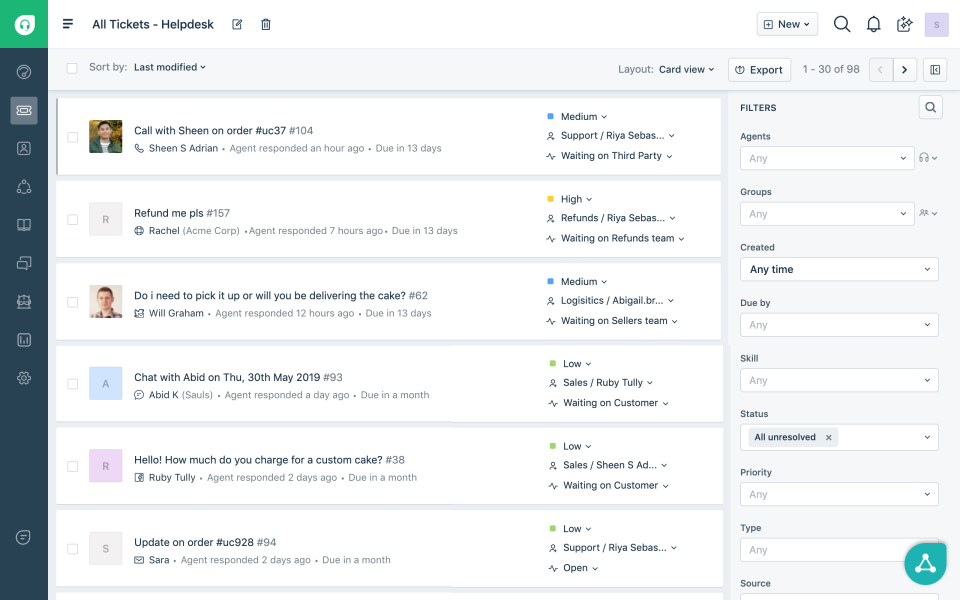

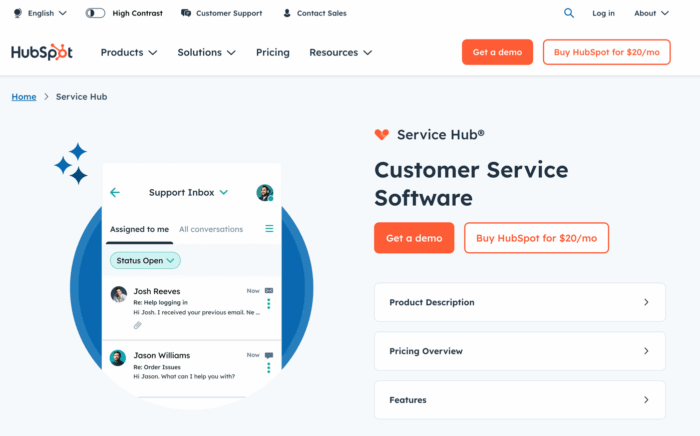

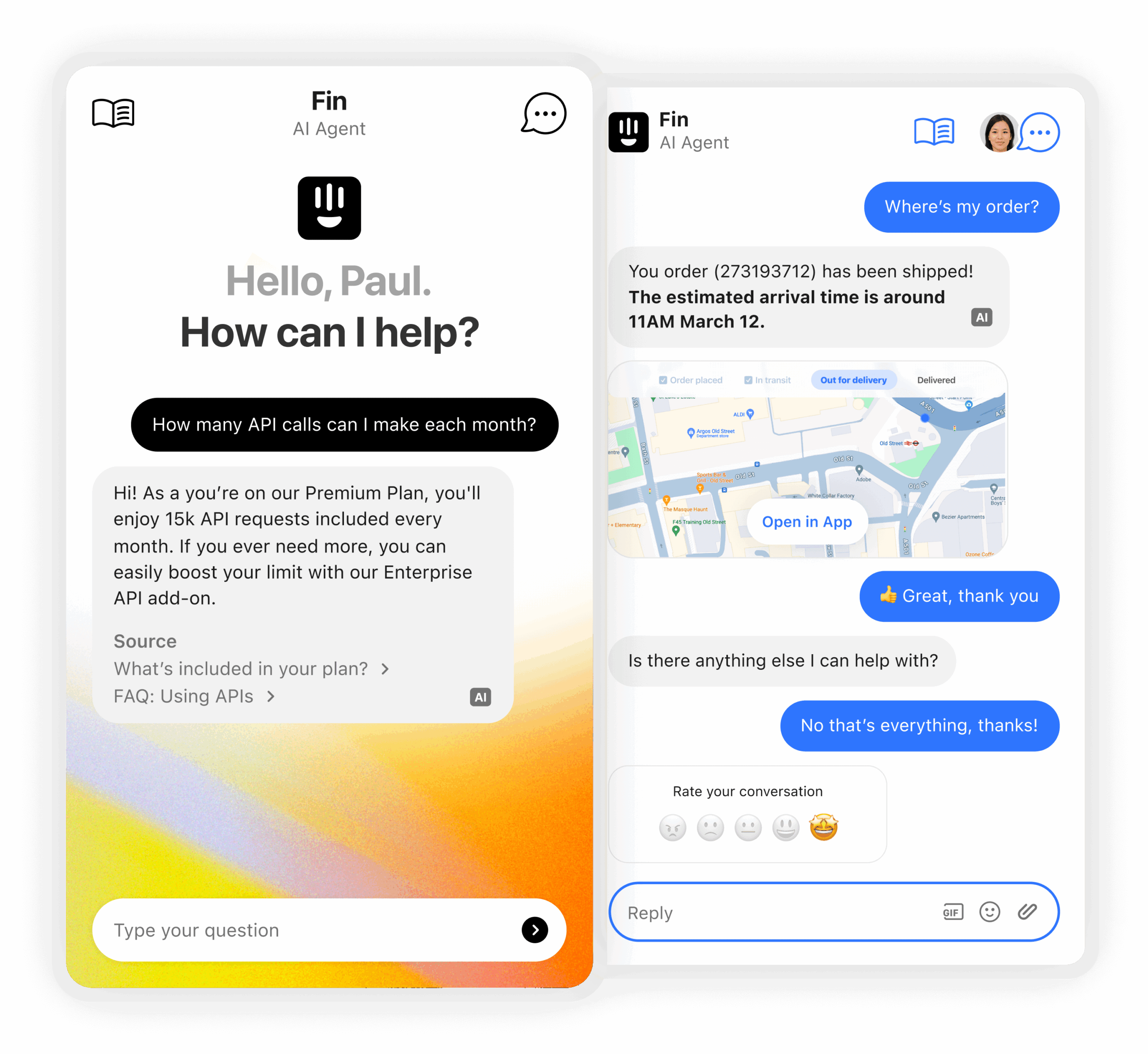
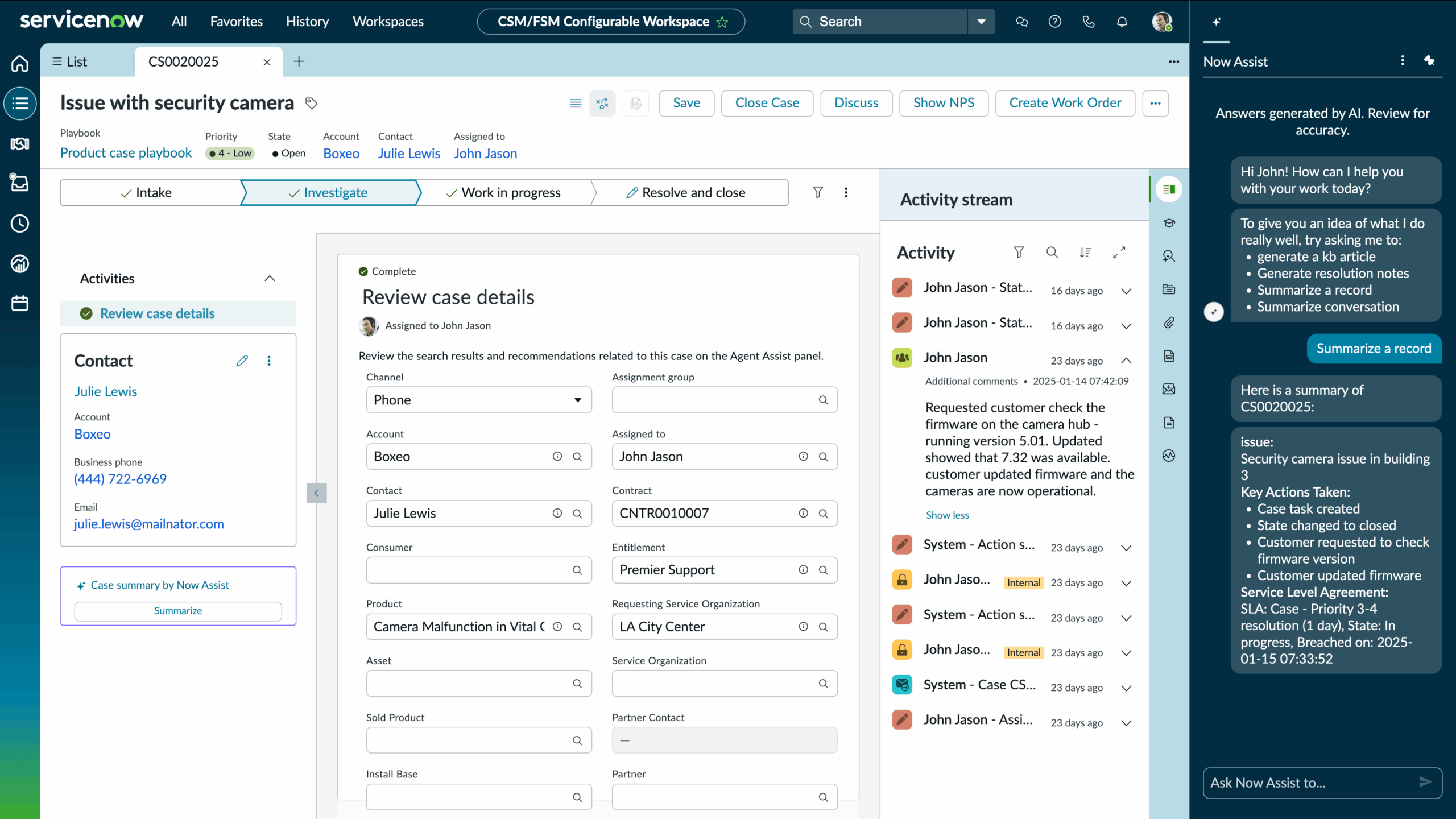

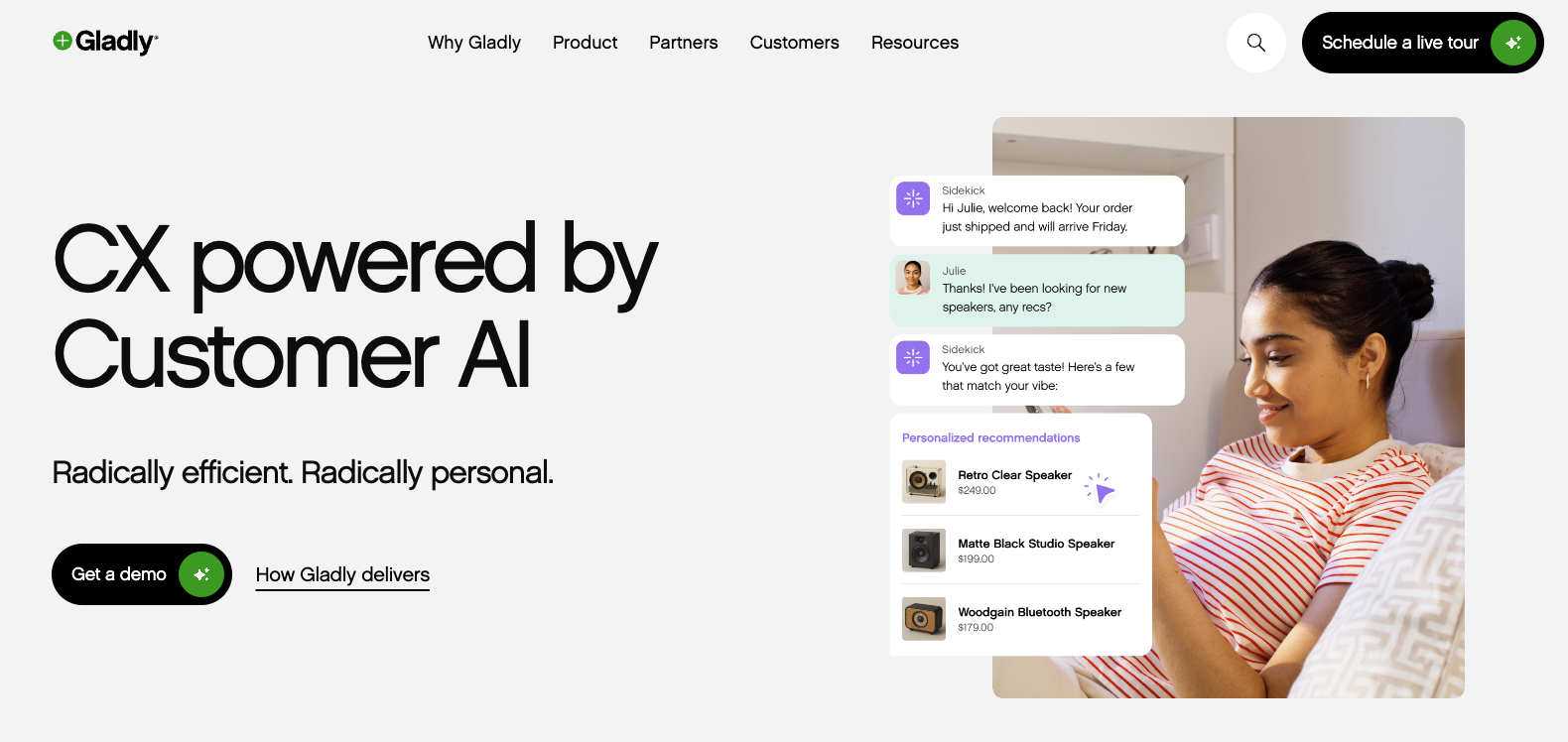

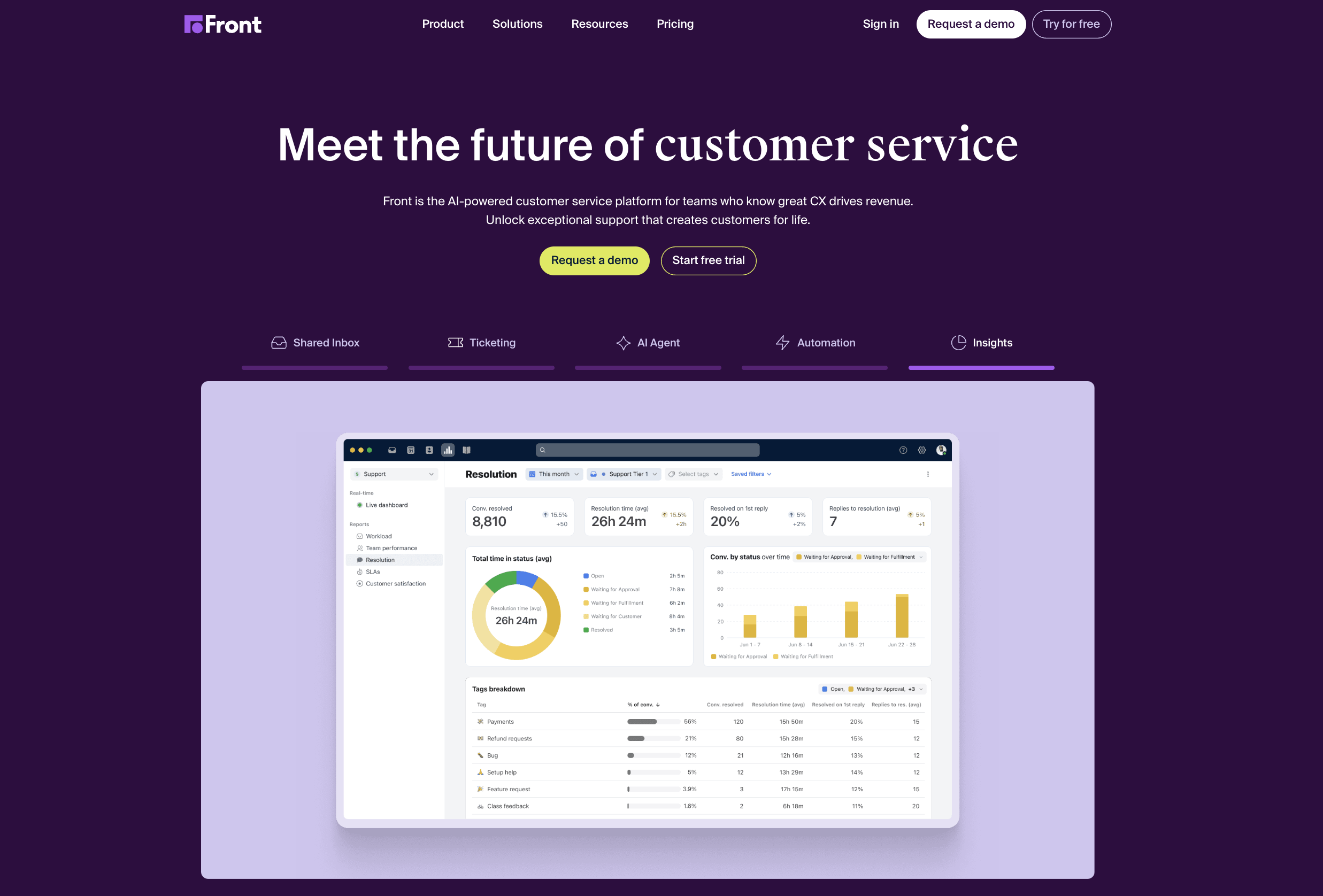

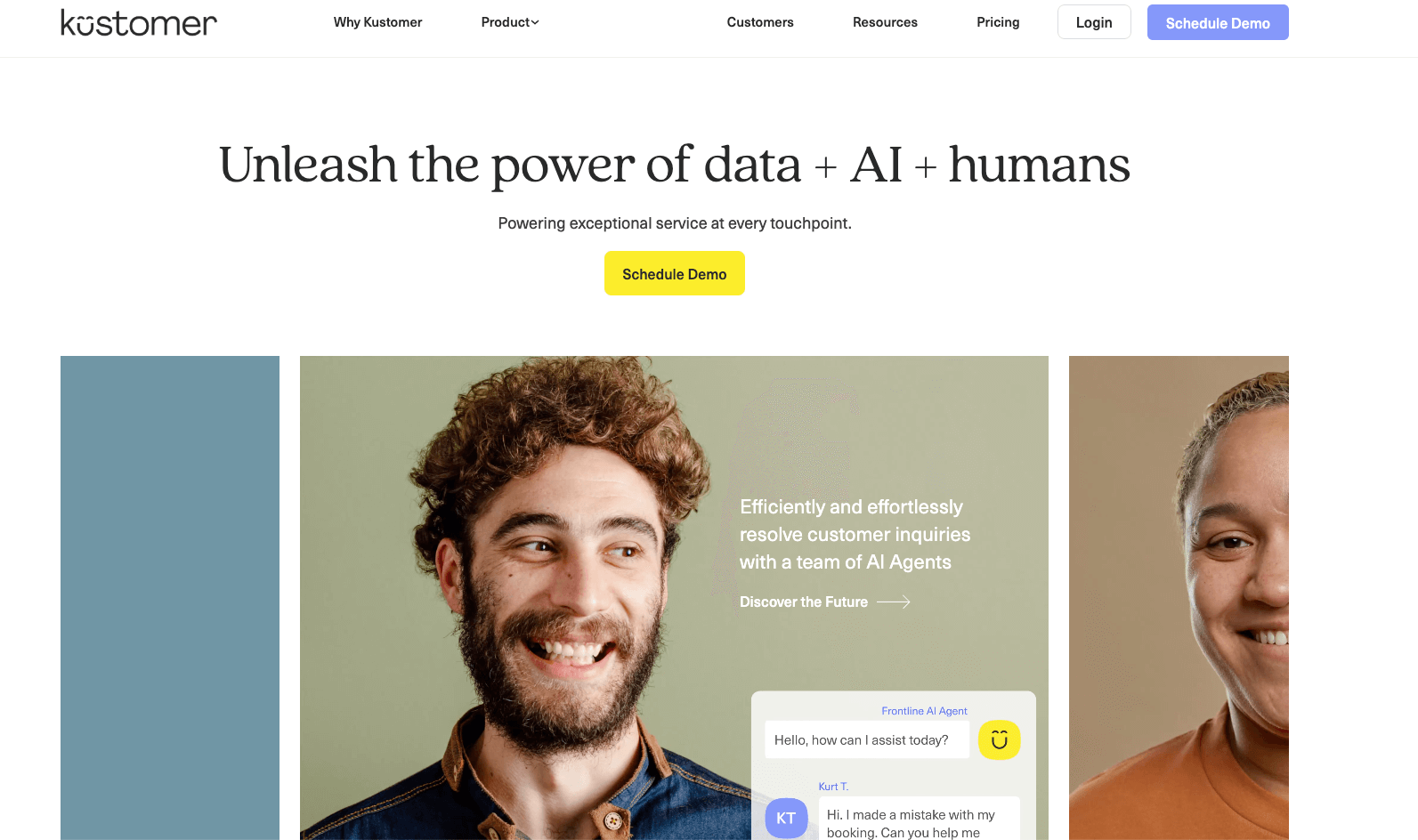

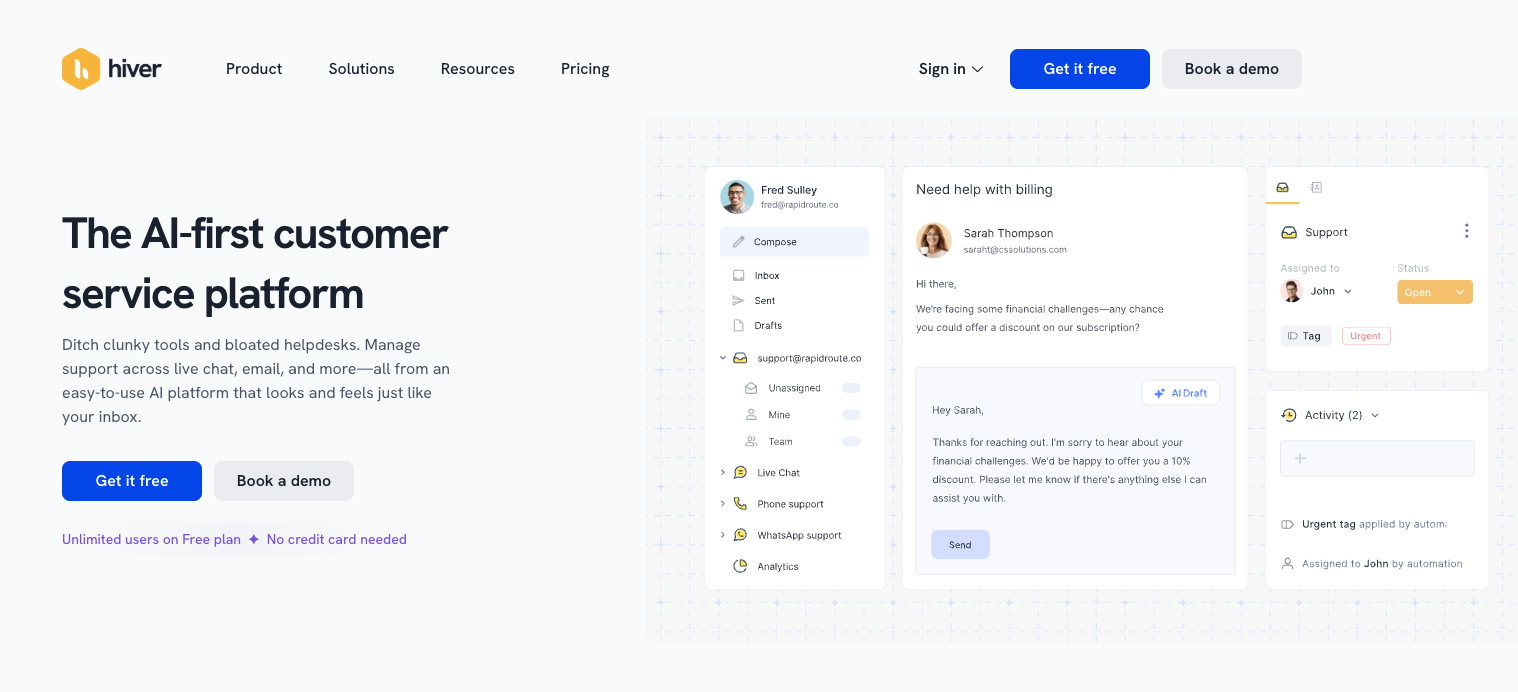
















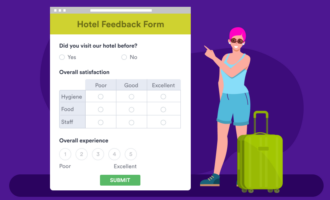






















Send Comment: